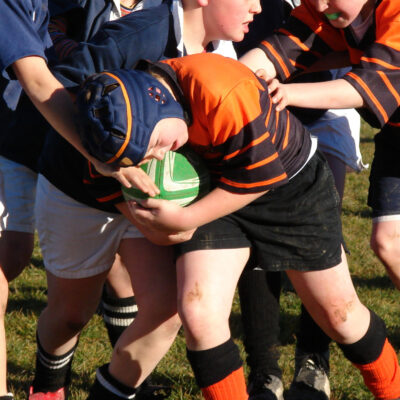Less than brilliant grades aren’t always a disaster, says Hilary Wilce, with the right support, there’s as much to learn from failure as there is from success.
It’s August, exam results season, and for many young people a time of celebration and optimism. They are setting out on the next step of life with their heads held high. But for others, things might not be looking so rosy. Their results may have been a terrible disappointment. They may have failed to get into the sixth form or college of their choice, or into their chosen university.
When this happens, it can feel very bitter, but in fact there is an awful lot to be said for failure. Indeed, the outcome of failure often turns out to be success. The schoolchild who ‘fails’ to get into their first choice primary school, or doesn’t pass the eleven-plus, may well find themselves happier and doing better at their alternative school. And a clearing-place university might turn out to be exactly the right one for a student to shine.
“Talk about your own mistakes and what you’ve learned from them”
Failure also teaches lots of useful lessons. As human beings we fail all the time – at work and at home – but if we are smart we can learn from that failure. We can figure out how to do things a different way, discover that we’re capable of working harder, get to know ourselves better and change the behaviours that are getting in our way.
That’s why good teachers positively welcome failure into their classrooms and tell pupils that mistakes are essential to good learning. They set high standards, but give students the support, encouragement and non-judgmental feedback they need to grow into doing as well as they can.
As parents, though, our instincts can be different. We want to protect our children from failure because we know how much the shame and pain of it can sting. But if we try too hard to protect our children from all failure, they will subliminally soak up our anxieties and become too scared to try new things, or to come home with less than perfect results.
They will absorb the message that they must do everything right, the first time they try it, and grow either timid and perfectionist, or else rebel and act up because they know they’ll never reach the high standards expected.
Parents who constantly push and bribe their children for high grades, who bellow and admonish their children on the touch lines of school pitches, are always demanding of schools why their children aren’t doing better… are people who are, deep down, terrified of failure.
Instead of falling into these patterns, make friends with failure and help your children to think of it as a normal part of life. Encourage them to look it in the face and see it as something that will help them to learn better and grow stronger.
Talk about your own mistakes and what you’ve learned from them. Avoid comparisons with higher-achieving pupils, or talking about success and failure in black and white terms. Instead encourage your child to see that their brain is pliable and plastic, quite capable of stretching itself round new things and rising to challenges.
Tell them that top athletes know that mental attitudes matter just as much as sporting prowess and that’s why they work as much on developing grit, determination and resilience as on developing their physical abilities.
Because at the end of the day, that’s where the roots of success and failure always lie – in how each one of us decides to look at life and meet the challenges it flings at us.
You may also like
Perfect Pitch
Mike Piercy, education consultant and former Head of The New Beacon, sings the praises of music in education What exactly is it that drives parents to make huge sacrifices by sending their children to independent schools? Different families have different...
‘It’s not fair!’
Mike Piercy, education consultant and former Head of The New Beacon, explains the importance of winning and losing with good grace The beefy second row lay prone, groaning, as the pack lumbered away. “Get up, Darling!” I cried. Opposition spectators...
Performance Power
Eastbourne College and Bede’s School discuss opportunities which give their students time to shine Director of Music at Eastbourne College, Dan Jordan, sings the praises of music at the school. It is 6.30pm, the night before a well-needed half-term holiday....















